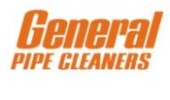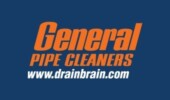
Phase down versus phase out
January 29, 2015 | By HPAC Magazine
HRAI forwards comments to Environment Canada on Notice of Intent to regulate HFCs.
The Heating, Refrigeration and Air Conditioning Institute of Canada (HRAI) has submitted comments to Environment Canada on behalf of HRAI and the Air-Conditioning, Heating, and Refrigeration Institute (AHRI) in the U.S. in response to Environment Canada’s Publication of the Notice of Intent to regulate hydrofluorocarbons, which was released on December 5, 2014. The two associations agreed to provide consistent industry input to regulators on both sides of the border because of Canada’s desire to harmonize with the HFC regulations being proposed by the United States Environmental Protection Agency (EPA).
The comments address the approach being taken for commercial refrigeration equipment and the potential negative impact on the equipment and the industry that services it. Of particular concern is Environment Canada’s intent to adopt the path the EPA has proposed, which is to restrict the use of certain HFC refrigerants. The proposed regulation includes prohibition of the manufacture and import of specific HFCs (134a and those with a higher global warming potential, i.e. 507 series and 404a) with use being phased out in condensing units and supermarket systems, stand-alone units and vending machines. Another measure in the notice is the prohibition of the manufacture and import of specific HFCs (245fa, 365mfc, 134a, 143a) in most foam end uses.
HRAI and AHRI suggest that a better alternative from the industry’s perspective would be to consider a regulation that is based on the North American Amendment Proposal to the Montreal Protocol, which calls for a gradual phase down of HFCs. HRAI and AHRI have supported the spirit of this amendment that would achieve an orderly and gradual phase down of HFCs. This phase down (as opposed to phase out) was specifically conceived to allow for the development of low GWP alternative technologies. In addition, the longer term phase down of HFC refrigerants and foam blowing agents should only be considered if adequate implementation timelines are included in the regulation. These timelines must be established to provide equipment manufacturers with adequate time to determine viable alternatives for their equipment.
A number of other issues concerning the proposed regulation were detailed including:
a) the need to have in place the Pollution Prevention Plan (P2) for Halocarbons in the stationary sector and the long awaited changes to the federal ODS regulation before implementing any regulations concerning HFCs;
b) changes needed to product design to allow for acceptable substitutes that are flammable compounds and the increased hazards associated with material transport, storage, dispensing and end-use of such alternatives;
c) lower energy efficiency ratings for equipment when using some of the lower GWP refrigerant substitutes and potential problems with meeting federal and provincial energy efficiency regulations for equipment being designed for these refrigerants; this could result in increased GHG emissions;
d) redesigned products will have to undergo the necessary testing and certification for safety, sanitation, and energy consumption and new refrigerants must be acceptable to Canadian building, fire and mechanical codes.
The industry strongly urged Environment Canada to take all of these issues into account when considering options for the HFC regulations. Environment Canada should also be aware that the timeline for implementation of the HFC regulations in the U.S. is difficult to determine at this time and Canada should not move forward with regulations in Canada until the U.S. implementation timing and approach is clear to avoid different requirements between the US and Canada that would create trade conflicts.
HRAI is discussing these comments with Environment Canada staff in preparation for consultations on the proposed regulations. The first consultation for all stakeholders is February 19 in Ottawa/Gatineau.
For further information, contact HRAI president Warren Heeley at tel. 800.267.223, ext. 227 or e-mail warren.heeley@hrai.ca.




